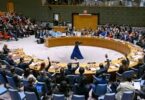Senior PML-N leaders, Ahsan Iqbal, Ayaz Sadiq and Khwaja Saad Rafiq have fired a barrage of allegations in press conference in Lahore, mostly directed against the Prime Minister. Former Planning Minister Ahsan Iqbal raised the bogey of kickbacks in import of medicines from India and OEBI scam. The bottom-line of their outburst revolved around the NAB cases against the party leaders which was evident from the demand of disbanding this anti-corruption watch dog, the foundation of which had been laid in the first government of Nawaz Sharif. Likewise, Senior Vice President of the party, Shahid Khaqan Abbasi, while talking to reporters after appearing before the Commission of Inquiry on sugar crisis, demanded summoning of the Prime Minister and Planning Minister by the commission to complete the probe in the matter of sugar export despite the depleting stock of the commodity.
Responding to the allegations of PML-N leaders, Information Minister Shibli Faraz said that top leadership of the party is reaping their own bad harvest. The minister argued that mere verbosity in press conferences and media talks lay bare the fact that they have no substantive material for defence in corruption cases. If their hands are clean then they should worry about nothing.
Keeping in view Pakistan’s being the active member of SARC, a proposal of giving India the status of most favoured nation in bilateral trade was on the table in the last PP government. However, no decision had been taken for implantation. On the contrary the last PML-N government discretely opened the flood gates of imports from India on low import duty. The composition of imports included finished consumers’ goods, food commodities, raw cotton and its yarn and raw material for the pharmaceutical industry. Pakistan used to import raw material for pharmaceutical products worth$50million. Neither the previous governments nor did the present one imported manufactured brands of medicines from India, otherwise inexpensive Indian brands of life saving drugs would have been available in the market. PTI government suspended trade relations with India after abrogation of special constitutional status of occupied Kashmir on August 5, 2019. Before the suspension of trade relations raw material for pharmaceutical products worth $35 million had been imported. Hence, the allegation of kickbacks in the import of medicines is baseless, concocted, and fabricated.
The health policy of 1960s had made it mandatory for multinational pharmaceutical firms to set up raw material producing units in addition to establishing R&D facilities in the drugs manufacturing plants. But in none of the PML-N governments’ formulation of industrial policy for facilitating the industries of raw material and import substitutions had been ever conceived. In the present government, work on long term industrial policy has started in which setting up raw material industries will get focus.
The cartelization of economy gained momentum in the past PPP government by making Competitive Commission of Pakistan (CCP) dysfunctional. It became well entrenched when CCP was made toothless by the succeeding PML-N government. The policy of giving subsidy on the export of sugar and wheat was also adopted in these two governments, which was carried over as a legacy by the vested interest group to the PTI government. It was the same group which may have prevailed in decision making on the export of sugar and wheat. However, the primary driver of wheat flour and sugar shortages was the monopoly and hoarding practices of powerful cartels that controlled the stocks and supply of these commodities.
PTI government has taken appropriate corrective legal and administrative measures to break the strong hold of cartels of food commodities. A Presidential Ordinance has been promulgated to curb the twin menace of hoarding and profiteering, envisaging severe punishments and confiscation of hoarded commodities. The administrative actions by the provincial governments have improved the supply situation in wholesale and retail markets. These actions have been further buttressed by giving subsidy on food items being purchased from the outlets of Utility Stores Corporation. It remains to be seen how the law come into action against the elite class with stakes in cartels.






